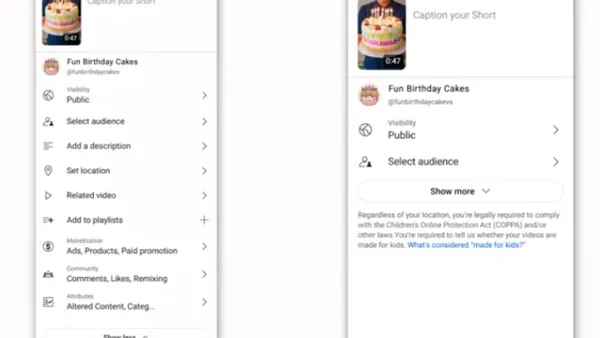Over the last few months there has been a lot of talk about whether or not blogs can truly help drive decision making power. The information is often conflicting, which may drive your average reader to more and more blogs and articles to come up with the truth in between.
For example, a Forrester survey from Q2 2008 created a lot of buzz when it revealed that "only 16% of people who read company blogs trust them." What I find most ironic about this is that the survey didn't generate a large level of interest until it hit the Forrester Groundswell BLOG, which as far as I know, is a company blog that does generate a lot of trust among its readers. You could argue that an analyst firm (who is supposed to rank vendors in an unbiased fashion) isn't the same as the companies they are talking about in the survey, but that's just semantics in my mind. They're using blogs in the same way that every other business should be using blogs â€" to serve up expertise that will hopefully drive more people to purchase their products.
I think that to say that a majority of people don't trust company blogs is probably par for the course, as Forrester's Bernoff acknowledges when he links to an Edelman article pointing out that people don't trust companies in general.
Yet that doesn't mean that blogs can't ultimately tip someone into making that final purchase. I think its safe to say that as a rule I don't trust company blogs, because as someone who has been in marketing for a long while I know that there is often a spin of information involved. I think that your average Internet blog reader knows this as well, but we need to give them a bit more credit. Most savvy readers aren't relying on one source of information. They may start at the company blog, read some information and then do corresponding searches to corroborate the material. So while they may not trust the blog, it doesn't mean that the blog was useless â€" it could have served as the stepping stone toward a purchase. Bernoff acknowledges that "In this case about 80% of those we polled said they did use corporate blogs," which I think is a pretty good indicator of what I say being true. The readers may not trust them, but clearly they read and rely on them in some fashion.
I would be curious to see if those same people surveyed in the Forrester report trust the main company website over the company blog â€" do they prefer reading lengthy white papers and collateral docs or do they identify more with information presented in a blog?
A ClickZ article by Enid Burns last October cites another survey, this time by Forrester company JupiterResearch and sponsored by BuzzLogic. The stats are interesting:
"Readership of blogs is on the rise. JupiterResearch noted a 300 percent growth in monthly blog readership in the past four years. Readers look to links and multiple blog sources to extend the conversation: 49 percent of blog readers, defined as someone who reads at least one blog a month, and 71 percent of frequent readers all read more than one blog per session. Multiple blog sources offer more opportunities for consumers to see blog ads. A quarter of readers say they trust ads on a blog, compared to 19 percent who trust ads on social networking sites."
So while readers may not trust blogs, it certainly seems that they are continuing to read them. Keep in mind though, that the latter survey seems to be talking about blogs in general, not specifically delineating them into company, media or personal blogs, as is evidenced by the stat about ads. I think that most people wouldn't trust ads on a company blog but if an individual blogger that someone reads and likes endorses a product, yes, by all means the click-throughs and purchases will be higher. I can attest to this on my writing blog, where I have received numerous kickbacks from purchases made on writing materials that I link to as an affialiate. I link to them because I trust the products and believe in them and readers trust my decision which ultimately results in a purchase.
In a blog post last fall, communications expert Sally Falkow points to a stat in the JupiterResearch/BuzzLogic survey that supports this: "50 percent of frequent blog readers say they have taken an action after reading a blog."
While readers may not trust blogs and it still seems like people read them anyway, there is still great value in building up trust with readers to help drive the possibility of a purchase even higher. In his blog post, Bernoff gives great tips for building trust on your company blog, all of which goes back to talking less about products and letting expertise shine. People connect to you when you demonstrate passion, when you share material that is immediately useful and when you write with an awareness of your reader's potential needs. No one wants a sales pitch from a company. Instead they want to feel like they know the people behind the products. As the Forrester Groundswell team talks about all the time, its about showing the HUMAN side of your company.
In that ClickZ piece, Valerie Combs, BuzzLogic VP of Corporate Comms, agrees. "One of the things that's so great about them [blogs] is the personal, specific information," said Combs. "Thorough, useful, honest creation, create a level of trust with the reader."
Bottom line, if your company isn't blogging, it probably needs to be.
Related articles by Zemanta
- Corporate blogs, trustworthy or not. Depends on who you ask.
- 84% of Corporate Blogs Lack Soul. And Suck
- Study: Blogging's Dead? Someone Forgot to Tell Readers.
- Sorry guys your blog ain't gonna do much for your Personal Brand
Link to original post








